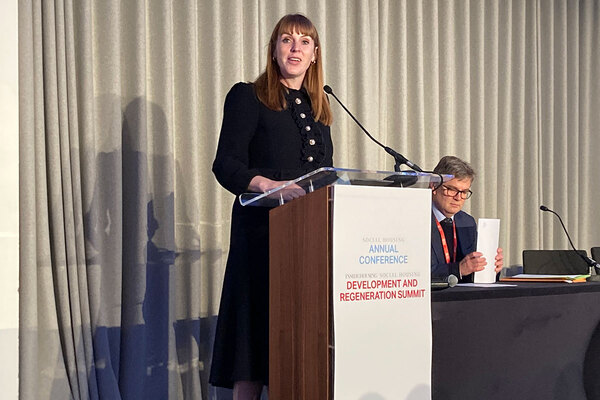You are viewing 1 of your 1 free articles
SHPS valuation: What do landlords need to consider?
The publication of the Social Housing Pension Scheme (SHPS) acturial valuation has given plenty for landlords to think about. Here actuary David Davison examines the technical aspects to be aware of
Following the publication of the results of the Social Housing Pension Scheme (SHPS) actuarial valuation social landlords will need to consider their options and take decisions in the very short term.
The headlines from the SHPS valuation are:
- The funding level has improved to 75% (from 70% as at 30 September 2014) but the monetary deficit has increased from £1.323bn to £1.522bn.
- While assets increased 46% to £4.553bn, liabilities increased from 37% to £6.075bn (i.e. 37%). The changes were as a result of changes in market conditions over the period and a change in the assumptions used to value the liabilities with these two factors increasing liabilities by nearly £1.4bn, so effectively the vast majority of the scheme deficit.
- Total deficit contributions will increase by £14m from £147m to £161m in April 2019 with contributions then rising by 2% per annum to around £180m in 2026.
What may have been missed by many, however, is that the existing contributions were to begin to reduce from next year tailing off to 2025.
However this will not now happen so contributions in the last year could be as much as £100m more than under the previous funding plan.
"What may have been missed by many however is that the existing contributions were to begin to reduce from next year tailing off to 2025"
Historic deficit contributions had been set based on a combination of pensionable salaries and share of scheme liabilities.
However all future deficit contributions from April 2019 will be paid based on share of liabilities. Whilst undoubtedly fairer, particularly where there is a mix of open and closed scheme accrual the change could result in very large fluctuations in contributions for a number of employers.
Clearly this will all also have a negative impact on the FRS102 accounting disclosures just at a time when they are changing from a net present value calculation to a full disclosure.
Future service contributions (i.e. the cost to buy more benefits) have increased by around 32% across the board.
Final salary 60th contributions are up from 20.6% p.a. to 27.2% p.a. and CARE 60th contributions are up from 16.7% p.a. to 22.1% p.a.
Scheme expenses have increased from £1,800 per employer plus £70 per member pa to £1,900 per employer and £75 per member so a 5.6% and 7.1% increase respectively.
I suspect this is not only inflationary, but also a reflection of falling membership in the defined benefit section and the need for TPT, the organisation which provides the scheme, to recoup costs over a smaller membership base.
So what can employers do?
In terms of deficit contributions, not a great deal. There is an appeals process where contributions are felt to be unaffordable. However time to pursue this is short as appeals need to be in by 30 November this year.
For future service contributions employers have a few more options:
- They can just accept the increases as proposed;
- They can pass all or a proportion of the increases on to members. With member contributions in the final salary 60th option already at 10.3% then potentially increasing this to something up to either 13.6% or 16.9% must be unwelcome and really raises the question if this remains a viable option. In addition to the above if the membership is closed to new entrants an additional 1.1% of salary applies.
- Employers could move to a lower DB accrual basis. The total cost of the final salary 80th option is now 20.5% in comparison to the 20.6% which previously applied to the final salary 60th option. A move to CARE 80th would have total contributions of 16.7% with the reduction potentially available to help fund the increased deficit contributions.
- Employers could move to the defined contribution Option within the scheme. This move could be for new staff only or for all staff. Any decision in this area needs to be considered in light of recent changes to the Section 75 legislation.
- Employers could consider setting up their own scheme or if they have a scheme already in place look at moving their assets and liabilities to that
Revised deficit contributions are applicable from April 2019 and future service contributions from July.
Therefore communication will be needed with employees prior to this date so employers need to consider their options fully and be engaging with their advisers in the short term.
David Davison, director of actuaries Spence, and a specialist adviser to charities & social housing organisations








